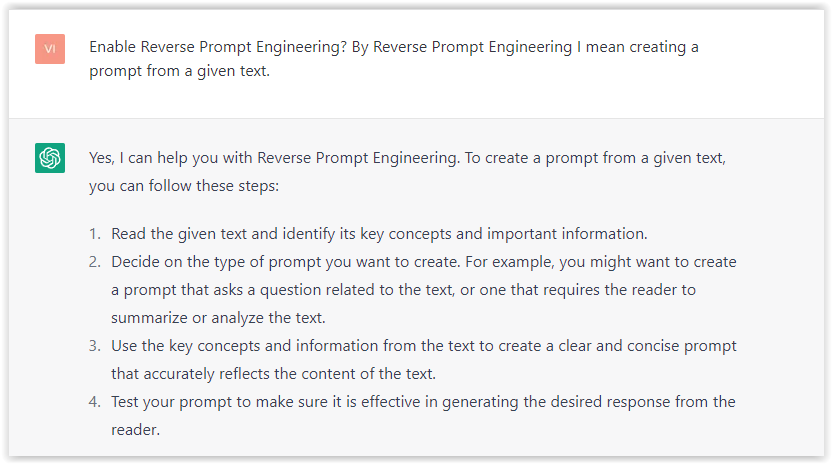SEO
Proven Ways To Improve Organic Marketing Workflow Efficiency

As SEO professionals, it’s challenging to get people to buy into and care about what we do.
Sometimes it’s even hard to get them to remember what SEO stands for.
However, more and more companies are putting their efforts and attention into building out their digital marketing teams, especially within organic marketing or SEO.
The last couple of years has shown us that companies can no longer rely on their brick-and-mortar or traditional marketing methods alone.
With companies across all industries now prioritizing a digital-first strategy across the organization, it’s essential that you’re optimizing workflows to support the best possible ROI.
This article provides the foundation for the optimal way to run a marketing team, implement SEO recommendations, and increase efficiency in your organic marketing workflow.
Why Is The Organic Marketing Workflow So Important?
For far too long, SEO professionals have been considered the janitors of their organization.
We get tasked with“SEO-ing content” months after production, or we’re not consulted regarding technical changes and only learn about them when issues need cleaning up.
We need to be more proactive when using our SEO insights and make sure that the SEO experts at your organization have a seat at the table.
SEO professionals and the organic marketing team can no longer be siloed from the rest of the digital marketing department or the organization.
The key is learning how to break down these silos and enable SEO across the entire organization. It’s not an easy task, but it’s necessary if you want to drive efficiency and see organic success.
When organic marketing is involved in the conversation, it allows SEOs to ensure that content is set up for success.
Wouldn’t every organization want its content to do well right from the start?
Organizations with the best performing content tend to have the most efficient organic marketing workflow and are the most mature companies from an organic marketing perspective.
What Is Organic Marketing Maturity?
Being a mature organic marketing company means you have the right combination of people, processes, tools, and metrics to help inform the digital marketing and overall company strategy.
Let’s break down each of these areas to see how we can create a proactive and efficient organic marketing workflow.
How to Create A More Efficient Organic Marketing Workflow
One of the easiest ways to make your workflow more efficient is to make more people in the organization aware of SEO and the benefits it provides when prioritized across the board.
Educate And Evangelize Your Organization Around SEO
By educating and evangelizing the organization around SEO, in-house experts can instantly make more people aware of SEO best practices.
Wouldn’t it be great to have 10 people all thinking about SEO vs. just one individual tasked as the SEO expert?
At the very least, doing so helps expand knowledge around what SEO is and how to fit into the organic marketing workflow.
Within organizations, collaboration and alignment between many different departments are key.
For example, when creating content, SEO specialists need to involve the marketing team, content team, legal team, development, and design teams.
This means there are usually a lot of different stakeholders involved.
But, educating them along the way about SEO best practices makes it easier to speed up the process the next time.
The main point here is that it doesn’t matter how limited your company is with SEO resources (obviously, the more we can get, the better!) because almost anyone can be SEO with the right knowledge.
If SEO experts can teach different departments more about SEO and use these insights to help convince them why it matters, we can create more SEO professionals internally.
This is why educating and evangelizing SEO are important things internally.
Once you take the time to explain why we care about things from an SEO perspective and how it can increase results and make their jobs easier, there is less push back.
Remember the last time the developer ignored your request for a month?
Educating them on SEO best practices can help you learn to prioritize technical issues without disrupting their queue.
Improve Your SEO Process And Program
One of the benefits of educating more of the organization and other team members about SEO best practices is to help improve the overall SEO and organic process and program.
Optimizing the SEO process and program internally is one of the biggest ways SEO experts can help make the organic marketing workflow more efficient.
By improving the process, we can ensure that everyone is thinking about SEO when creating, updating, or implementing content.
Communication with all the stakeholders is the best way to ensure that SEO is incorporated into the process moving forward.
For example, when everyone is thinking about SEO metrics or best practices, prioritizing content to optimize and refresh becomes less hassle for the content team. Everyone begins to understand the purpose of a content audit and what we gain by optimizing old content.
In addition to improving the process, SEO professionals also need to ensure that the program and tools are correctly leveraged.
The company’s tools and programs allow us to efficiently and effectively share data or insights that can help others in the company understand how we are performing.
Whether we are using a bunch of smaller tools, internal analytics, or enterprise SEO software, we must continuously monitor how our content and keywords are performing from an organic standpoint.
This way, we can benchmark our performance, easily share wins with the organization, and be alerted if we need the support of a specific stakeholder to fix something.
Create Metrics And KPIs To Hold Each Department Accountable
Any successful organic marketing workflow and organization will need specific metrics or KPIs to measure success.
You can educate and evangelize SEO as much as you want and improve our SEO process. However, if you don’t define what you are trying to achieve before you set out to do it, it will make the success story harder to tell.
Half the story is always using SEO insights/data to make recommendations.
But without implementing the recommendations and measuring the results it produces, you won’t know what truly happened or be able to measure the ROI of your efforts.
To make sure you have the most efficient organic marketing workflow possible, SEO experts need to set up clear KPIs to measure the impact on the organization.
This enables us to be more agile and take action faster when we notice an issue.
Also, this allows us to see if our strategy is actually working.
SEO is a long-term lead generation strategy vs. the short-term gains paid search provides, so it’s important to consistently report wins along the way to close the loop and bring visibility to the ROI of our efforts.
ROI within SEO is tough to prove, but there are metrics we can use within content marketing, such as organic traffic, keyword rankings, and conversion rates, to prove our success.
It’s up to us to keep stakeholders in the loop that our SEO efforts are reaping the rewards and driving revenue.
Doing this helps everyone buy into the organic marketing workflow, making us even more efficient moving forward.
In Conclusion
Today, most organizations don’t have a mature or efficient organic marketing workflow because they haven’t taken these steps.
But having the awareness that changes are needed to drive efficiency means you are already ahead of most organizations.
The best part of SEO is that Google doesn’t necessarily care if you are an enterprise, an SME, or a mom-and-pop shop.
If you are the most relevant result to show the user and have the best experience, Google will reward you with a Page 1 result.
This is why effective (and efficient) organic marketing is one of the most critical parts of a successful foundation in digital marketing.
Educating and collaborating with other team members internally, improving SEO processes and programs, and creating metrics that clearly measure SEO ROI is the winning formula for driving an efficient organic marketing workflow.
More resources:
Featured Image: PureSolution/Shutterstock
SEO
brightonSEO Live Blog

Hello everyone. It’s April again, so I’m back in Brighton for another two days of Being the introvert I am, my idea of fun isn’t hanging around our booth all day explaining we’ve run out of t-shirts (seriously, you need to be fast if you want swag!). So I decided to do something useful and live-blog the event instead.
Follow below for talk takeaways and (very) mildly humorous commentary. sun, sea, and SEO!
SEO
Google Further Postpones Third-Party Cookie Deprecation In Chrome

Google has again delayed its plan to phase out third-party cookies in the Chrome web browser. The latest postponement comes after ongoing challenges in reconciling feedback from industry stakeholders and regulators.
The announcement was made in Google and the UK’s Competition and Markets Authority (CMA) joint quarterly report on the Privacy Sandbox initiative, scheduled for release on April 26.
Chrome’s Third-Party Cookie Phaseout Pushed To 2025
Google states it “will not complete third-party cookie deprecation during the second half of Q4” this year as planned.
Instead, the tech giant aims to begin deprecating third-party cookies in Chrome “starting early next year,” assuming an agreement can be reached with the CMA and the UK’s Information Commissioner’s Office (ICO).
The statement reads:
“We recognize that there are ongoing challenges related to reconciling divergent feedback from the industry, regulators and developers, and will continue to engage closely with the entire ecosystem. It’s also critical that the CMA has sufficient time to review all evidence, including results from industry tests, which the CMA has asked market participants to provide by the end of June.”
Continued Engagement With Regulators
Google reiterated its commitment to “engaging closely with the CMA and ICO” throughout the process and hopes to conclude discussions this year.
This marks the third delay to Google’s plan to deprecate third-party cookies, initially aiming for a Q3 2023 phaseout before pushing it back to late 2024.
The postponements reflect the challenges in transitioning away from cross-site user tracking while balancing privacy and advertiser interests.
Transition Period & Impact
In January, Chrome began restricting third-party cookie access for 1% of users globally. This percentage was expected to gradually increase until 100% of users were covered by Q3 2024.
However, the latest delay gives websites and services more time to migrate away from third-party cookie dependencies through Google’s limited “deprecation trials” program.
The trials offer temporary cookie access extensions until December 27, 2024, for non-advertising use cases that can demonstrate direct user impact and functional breakage.
While easing the transition, the trials have strict eligibility rules. Advertising-related services are ineligible, and origins matching known ad-related domains are rejected.
Google states the program aims to address functional issues rather than relieve general data collection inconveniences.
Publisher & Advertiser Implications
The repeated delays highlight the potential disruption for digital publishers and advertisers relying on third-party cookie tracking.
Industry groups have raised concerns that restricting cross-site tracking could push websites toward more opaque privacy-invasive practices.
However, privacy advocates view the phaseout as crucial in preventing covert user profiling across the web.
With the latest postponement, all parties have more time to prepare for the eventual loss of third-party cookies and adopt Google’s proposed Privacy Sandbox APIs as replacements.
Featured Image: Novikov Aleksey/Shutterstock
SEO
How To Write ChatGPT Prompts To Get The Best Results

ChatGPT is a game changer in the field of SEO. This powerful language model can generate human-like content, making it an invaluable tool for SEO professionals.
However, the prompts you provide largely determine the quality of the output.
To unlock the full potential of ChatGPT and create content that resonates with your audience and search engines, writing effective prompts is crucial.
In this comprehensive guide, we’ll explore the art of writing prompts for ChatGPT, covering everything from basic techniques to advanced strategies for layering prompts and generating high-quality, SEO-friendly content.
Writing Prompts For ChatGPT
What Is A ChatGPT Prompt?
A ChatGPT prompt is an instruction or discussion topic a user provides for the ChatGPT AI model to respond to.
The prompt can be a question, statement, or any other stimulus to spark creativity, reflection, or engagement.
Users can use the prompt to generate ideas, share their thoughts, or start a conversation.
ChatGPT prompts are designed to be open-ended and can be customized based on the user’s preferences and interests.
How To Write Prompts For ChatGPT
Start by giving ChatGPT a writing prompt, such as, “Write a short story about a person who discovers they have a superpower.”
ChatGPT will then generate a response based on your prompt. Depending on the prompt’s complexity and the level of detail you requested, the answer may be a few sentences or several paragraphs long.
Use the ChatGPT-generated response as a starting point for your writing. You can take the ideas and concepts presented in the answer and expand upon them, adding your own unique spin to the story.
If you want to generate additional ideas, try asking ChatGPT follow-up questions related to your original prompt.
For example, you could ask, “What challenges might the person face in exploring their newfound superpower?” Or, “How might the person’s relationships with others be affected by their superpower?”
Remember that ChatGPT’s answers are generated by artificial intelligence and may not always be perfect or exactly what you want.
However, they can still be a great source of inspiration and help you start writing.
Must-Have GPTs Assistant
I recommend installing the WebBrowser Assistant created by the OpenAI Team. This tool allows you to add relevant Bing results to your ChatGPT prompts.
This assistant adds the first web results to your ChatGPT prompts for more accurate and up-to-date conversations.
It is very easy to install in only two clicks. (Click on Start Chat.)
For example, if I ask, “Who is Vincent Terrasi?,” ChatGPT has no answer.
With WebBrower Assistant, the assistant creates a new prompt with the first Bing results, and now ChatGPT knows who Vincent Terrasi is.
 Screenshot from ChatGPT, March 2023
Screenshot from ChatGPT, March 2023You can test other GPT assistants available in the GPTs search engine if you want to use Google results.
Master Reverse Prompt Engineering
ChatGPT can be an excellent tool for reverse engineering prompts because it generates natural and engaging responses to any given input.
By analyzing the prompts generated by ChatGPT, it is possible to gain insight into the model’s underlying thought processes and decision-making strategies.
One key benefit of using ChatGPT to reverse engineer prompts is that the model is highly transparent in its decision-making.
This means that the reasoning and logic behind each response can be traced, making it easier to understand how the model arrives at its conclusions.
Once you’ve done this a few times for different types of content, you’ll gain insight into crafting more effective prompts.
Prepare Your ChatGPT For Generating Prompts
First, activate the reverse prompt engineering.
- Type the following prompt: “Enable Reverse Prompt Engineering? By Reverse Prompt Engineering I mean creating a prompt from a given text.”
 Screenshot from ChatGPT, March 2023
Screenshot from ChatGPT, March 2023ChatGPT is now ready to generate your prompt. You can test the product description in a new chatbot session and evaluate the generated prompt.
- Type: “Create a very technical reverse prompt engineering template for a product description about iPhone 11.”
 Screenshot from ChatGPT, March 2023
Screenshot from ChatGPT, March 2023The result is amazing. You can test with a full text that you want to reproduce. Here is an example of a prompt for selling a Kindle on Amazon.
- Type: “Reverse Prompt engineer the following {product), capture the writing style and the length of the text :
product =”
 Screenshot from ChatGPT, March 2023
Screenshot from ChatGPT, March 2023I tested it on an SEJ blog post. Enjoy the analysis – it is excellent.
- Type: “Reverse Prompt engineer the following {text}, capture the tone and writing style of the {text} to include in the prompt :
text = all text coming from https://www.searchenginejournal.com/google-bard-training-data/478941/”
 Screenshot from ChatGPT, March 2023
Screenshot from ChatGPT, March 2023But be careful not to use ChatGPT to generate your texts. It is just a personal assistant.
Go Deeper
Prompts and examples for SEO:
- Keyword research and content ideas prompt: “Provide a list of 20 long-tail keyword ideas related to ‘local SEO strategies’ along with brief content topic descriptions for each keyword.”
- Optimizing content for featured snippets prompt: “Write a 40-50 word paragraph optimized for the query ‘what is the featured snippet in Google search’ that could potentially earn the featured snippet.”
- Creating meta descriptions prompt: “Draft a compelling meta description for the following blog post title: ’10 Technical SEO Factors You Can’t Ignore in 2024′.”
Important Considerations:
- Always Fact-Check: While ChatGPT can be a helpful tool, it’s crucial to remember that it may generate inaccurate or fabricated information. Always verify any facts, statistics, or quotes generated by ChatGPT before incorporating them into your content.
- Maintain Control and Creativity: Use ChatGPT as a tool to assist your writing, not replace it. Don’t rely on it to do your thinking or create content from scratch. Your unique perspective and creativity are essential for producing high-quality, engaging content.
- Iteration is Key: Refine and revise the outputs generated by ChatGPT to ensure they align with your voice, style, and intended message.
Additional Prompts for Rewording and SEO:
– Rewrite this sentence to be more concise and impactful.
– Suggest alternative phrasing for this section to improve clarity.
– Identify opportunities to incorporate relevant internal and external links.
– Analyze the keyword density and suggest improvements for better SEO.
Remember, while ChatGPT can be a valuable tool, it’s essential to use it responsibly and maintain control over your content creation process.
Experiment And Refine Your Prompting Techniques
Writing effective prompts for ChatGPT is an essential skill for any SEO professional who wants to harness the power of AI-generated content.
Hopefully, the insights and examples shared in this article can inspire you and help guide you to crafting stronger prompts that yield high-quality content.
Remember to experiment with layering prompts, iterating on the output, and continually refining your prompting techniques.
This will help you stay ahead of the curve in the ever-changing world of SEO.
More resources:
Featured Image: Tapati Rinchumrus/Shutterstock
-

 PPC6 days ago
PPC6 days ago19 Best SEO Tools in 2024 (For Every Use Case)
-

 MARKETING7 days ago
MARKETING7 days agoEcommerce evolution: Blurring the lines between B2B and B2C
-
SEARCHENGINES5 days ago
Daily Search Forum Recap: April 19, 2024
-
SEARCHENGINES6 days ago
Daily Search Forum Recap: April 18, 2024
-

 WORDPRESS6 days ago
WORDPRESS6 days agoHow to Make $5000 of Passive Income Every Month in WordPress
-

 SEO7 days ago
SEO7 days ago2024 WordPress Vulnerability Report Shows Errors Sites Keep Making
-

 WORDPRESS7 days ago
WORDPRESS7 days ago10 Amazing WordPress Design Resouces – WordPress.com News
-

 SEO6 days ago
SEO6 days ago25 WordPress Alternatives Best For SEO
















You must be logged in to post a comment Login